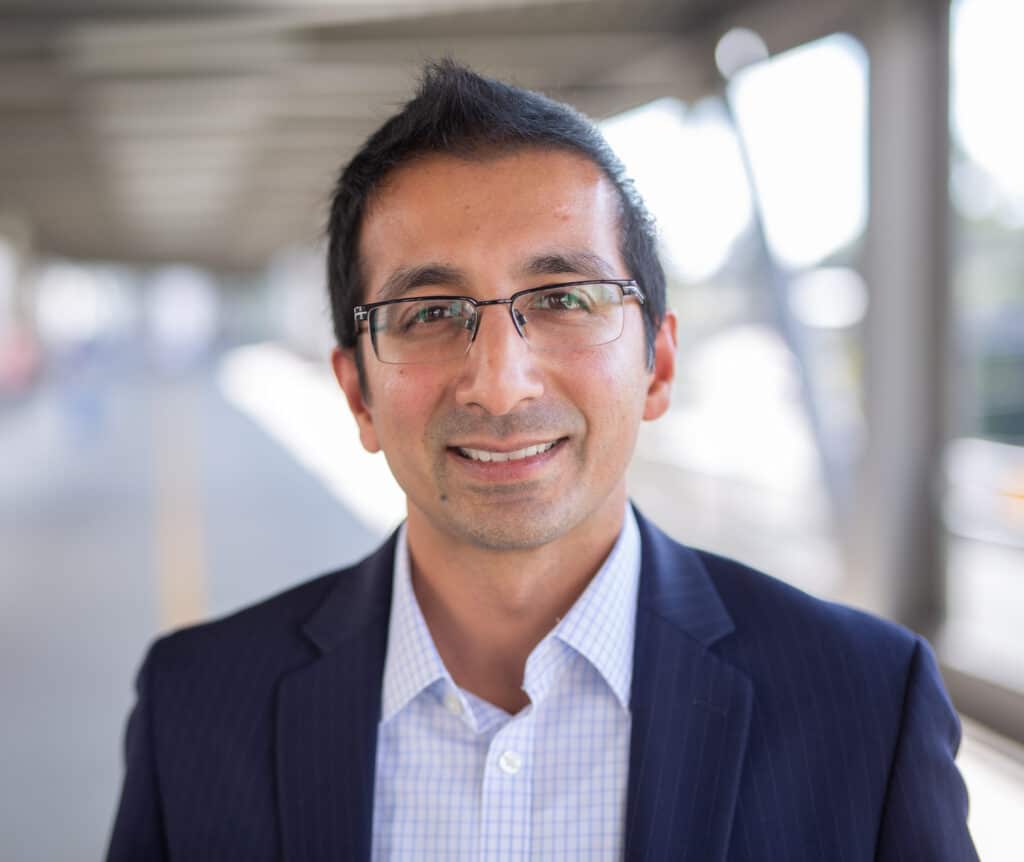
For Gaorav Gupta, M.D., Ph.D., a former Komen Career Catalyst Research (CCR) grantee, the true reward of being a breast cancer researcher does not come from a grant or a successful publication, but from knowing his work has led to an improvement in patients’ lives.
Dr. Gupta is an associate professor at the University of North Carolina at Chapel Hill and co-leader of the UNC Lineberger Breast Cancer Research Program. He is receiving Komen’s Rising Star Award for his innovative research in the genetic analysis and molecular profiling of tumor cells, as well as his ongoing efforts to create more personalized, targeted therapies for breast cancer patients.
Through his work at the UNC Lineberger Breast Cancer Research Program, Dr. Gupta and his team are exploring what causes the DNA damage and genetic mutations that can lead to treatment resistance in tumor cells. For some patients, this treatment resistance can eventually lead to metastatic breast cancer. With a better understanding of what causes these genetic mutations, Dr. Gupta and his team hope to identify more effective treatments that can prevent treatment resistance and metastasis.
“The focus of my lab has really been on finding the attributes of cancer that are unique and potentially targetable,” Dr. Gupta says. “Once tumor cells have genetically adapted, they can become resistant to treatment. By identifying the dependencies of these cancers, we hope to find better ways of treating them.”
Dr. Gupta says his passion for breast cancer research initially started as a scientific endeavor but has evolved into a much deeper calling. With some of his family members now affected by the disease, and with his regular interactions with breast cancer patients, it has become much more personal.
“At this stage, I just feel like I’m all in,” Dr. Gupta says. “I’m excited to see the progress being made, but of course, the need for continued progress is still there.”
New Treatment Possibilities
As a radiation oncologist, Dr. Gupta sees a great opportunity to re-imagine how radiation can be used to cure breast cancer. He believes that radiation could be a perfect partner to immunotherapy because it can stimulate local immune responses within the tumor and throughout the body in a manner that does not suppress systemic immunity.
“I’m inspired by the possibility that delivering focal radiation combined with immunotherapy to breast tumors prior to their surgical removal may potently stimulate anti-tumor immune responses and create opportunities to reconsider whether we still need as much chemotherapy,” he says.
Dr. Gupta hopes the results of the P-RAD trial, which is currently testing this possibility, will inspire doctors to use radiation in a fundamentally different way, making the treatment safer and more personalized so patients can live breast cancer-free, but also with the highest quality of life.
Finding New Opportunities Through Komen
Dr. Gupta says that receiving Komen’s Rising Star Award is incredibly humbling. He is grateful to foundations like Komen for bringing people together and providing resources that allow individuals to make impactful discoveries at a time when resources and funding opportunities can be limited.
“I look around me and see so many people that are worthy of recognition and I’m just honored that I am being recognized by an organization that’s done so much to support breast cancer research, and a selection committee that was comprised of many of my breast cancer heroes,” Dr. Gupta says. “This award is an inspiration for my laboratory team and to everyone we’ve collaborated with because it’s a recognition of what we’ve been working so hard to achieve.”
Going forward, Dr. Gupta says he is excited by the possibilities of new collaborations and new partnerships with other researchers and hopes these interactions can help break down the existing siloes within the research community.
“It’s those connections that can be really transformative for a research program because it really does take a village, and we are just one part of that,” he says.
“I am excited to give back as much as I can to others in the community so that we can continue to develop the future generations of researchers and clinicians, to bring forth the progress that is truly needed.”



